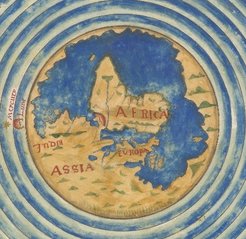Judicial archival documentation as cultural heritage of Portuguese-speaking African countries
PhD Project

The Portuguese-speaking African Countries (PALOP) form a community that emerged in 1979, during the final process of decolonization and independence from Portugal. The group composed of Angola, Cape Verde, Guinea-Bissau, Mozambique, São Tomé and Príncipe, and later would also include Equatorial Guinea. These countries signed international cooperation protocols to develop activities in various areas, such as the economy, education, culture, and the preservation of the Portuguese language, considered a common heritage of their peoples.
During the many centuries of colonization and subjugation of the PALOP countries, it was not practically possible to create specific and consistent legal norms to ensure the protection and access to the judicial documents produced and archived. The main aim of this research is to study the normative framework necessary to guarantee the access, preservation, valorization, and dissemination of these judicial documents through an interpretive reading of the constitutional and legal provisions related to the topic.
The historical documents of the PALOP courts, stored in national, regional and local archives, as well as in the court archives themselves, are essential for narrating the collective memory of these peoples. However, due to the varied state of preservation of these documents, proper archival treatment is necessary to ensure their preservation and permanence. These historical documents are important testimonies for present generations, as they contribute to understanding the main transformations of the people and are valuable tools for understanding the development of jurisprudential thought.
Judicial documentation, especially court cases in PALOP archives, constitutes a cultural heritage of great importance, which should be subject to classification and recognition as a recognition as being important not only at the national, regional or local levels, but also from a global perspective. This study advocates the need for this documentation to be widely valued, through normative instruments that can clarify issues related to access, use and enjoyment of these documents, developed over the course of the 20th and 21st centuries.
The constitutional texts of the PALOP member countries recognize the right to information and access to the administrative documents of African states. However, in the field of judicial documents, the approach is different, and it is possible to identify only generic legal instruments, which, in our view, are insufficient to address the challenges related to the dissemination and accessibility of documents produced and archived in the courts of these countries.
The absence of a specific legal framework at the level of the PALOP, regarding the protection, defense, and promotion of archival judicial documentation, reinforces the need for the creation of an alternative regulatory proposal. This proposal could contribute to the realization of the constitutional ideals of access to the historical documentary heritage, which, by constitutional mandate, cannot be denied to anyone.
